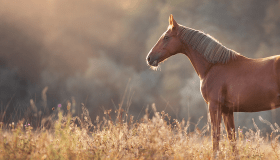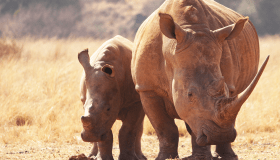
July 1, 2020 – For more than 70 years, Morris Animal Foundation has been a global leader in funding studies to advance animal health. With the help of generous donors like you, we are improving the health and well-being of dogs, cats, horses and wildlife worldwide.
Clinical Trial for Deadly Blood Disorder
Immune-mediated hemolytic anemia (IMHA) is a serious blood disorder that causes the body to destroy its own red blood cells. Previous Foundation-funded work by Cornell University researchers identified a safe and promising drug to treat IMHA in dogs. Researchers have now started enrolling client-owned dogs to further investigate the efficacy of this drug as a novel treatment for IMHA. Contact Cornell University for enrollment criteria. (BMC Veterinary Research, December 2019)
Promising Oral Cancer Therapy
Oral squamous cell carcinoma (OSCC) is a common and aggressive cancer in cats with limited treatment options. University of Minnesota researchers used newly developed experimental drugs, designed for people with oral cancer, to see if these same drugs might work for cats with OSCC. The team found the drugs slowed OSCC cell and tumor growth under laboratory conditions. Although more research is needed, the drugs may be a promising new therapy for OSCC in cats. (Veterinary and Comparative Oncology, October 2019)
Persistent Joint Infections
When bacteria enter a horse’s joint, they can group together to form a community called a biofilm, which in turn helps the bacteria survive antibiotic treatment. This can lead to chronic infections that cause inflammation and arthritis and, in some cases, be fatal if not resolved. North Carolina State University researchers developed a specialized platelet product that can combat bacteria within biofilm communities and work in concert with antibiotics to help clear these challenging infections in horses. (Journal of Orthopaedic Research, December 2019)
More Tadpoles
Mississippi State University researchers developed assisted-breeding techniques to help conserve and repopulate endangered frogs and toads. These techniques now are standard practice at many zoos around the world. The same team established a safe way to produce eggs out of season, or multiple times a year, using Fowler’s toads as their model system. This new strategy potentially could increase tadpole production to help save endangered amphibian species worldwide. (Conservation Physiology, January 2020)




